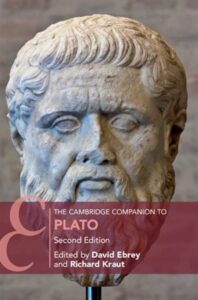For The Big Read 2023, the author I’ve selected is Plato. I first read about him and his teacher Socrates, whom he immortalized in many of his extant dialogues, when I was still a boy (thank all that is good and holy that my parents bought me a set of encyclopedias as a child because the names of either of these two eminent philosophers were not – to the best of my recollection – mentioned even once during my entire twelve years of public school studies). Since that time, I’ve read a fair number of his writings, some – such as the Apology – more times than I can recall, following the reading of a few very well-written essays upon him, his works, and the times in which he wrote them, I have come to realize that I am lacking genuinely thorough, and as a result, a widely applicable, understanding of all these things as a whole. Therefore I’ll be reading the entire Platonic corpus throughout 2023 to remedy this deficiency in my knowledge.
The texts of Plato’s works I shall be using (in English translation as my Greek is, alas, no where near as fluent as it once was) will be:
- The Collected Dialogues of Plato, edited by Edith Hamilton and Huntington Cairns, translated by Lane Cooper
- The Loeb Classical Library editions of the works of Plato
 While there are multiple methods of organizing a reading of Plato’s works, I am planning to follow (generally, at least – see below) the one presented in the chapter “Introduction to the Study of Plato” from The Cambridge Companion to Plato, 2nd Edition, a book that I shall also be reading along with my reading of Plato’s works themselves in order to deepen my understanding.
While there are multiple methods of organizing a reading of Plato’s works, I am planning to follow (generally, at least – see below) the one presented in the chapter “Introduction to the Study of Plato” from The Cambridge Companion to Plato, 2nd Edition, a book that I shall also be reading along with my reading of Plato’s works themselves in order to deepen my understanding.
Early (Socratic) Period:
- Apology
- Crito
- Euthyphro
- Gorgias
- Hippias Minor
- (Hippias Major)
- Ion
- Laches
- Lysis
- (Menexenus)
- Protagoras
Middle Period:
- Meno
- Cratylus
- Euthydemus
- Phaedo
- Republic
- Symposium
- Phaedrus
- Parmenides
- Theatetus
Late Period:
- Sophist
- Statesman
- Timaeus
- Critias
- Philebus
- Laws
To these, the Loeb Classical Library editors also add the following dialogues that are of questioned authorship in a single concluding volume (XII) to their series of his works:
- Charmides
- Alcibiades I
- Alcibiades II
- Hipparchus
- The Lovers
- Theages
- Minos
- Epinomis
Beyond these additional eight in the Loeb series, there are many more that have over time been ascribed to Plato but that are very unlikely to have actually been his work. This “less likely apocrypha” I shall forego for the present project.
As you would also expect, additional commentaries, histories, and similar supporting works will also be included throughout this course of study, as well any recorded lectures and podcasts that are found along the way.
So please check back to this column regularly as I shall be adding updates to it regarding both progress and discoveries made.
